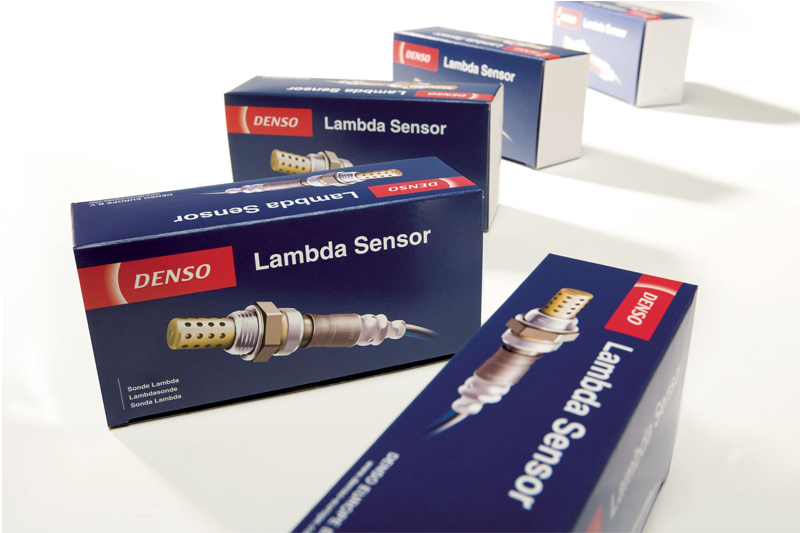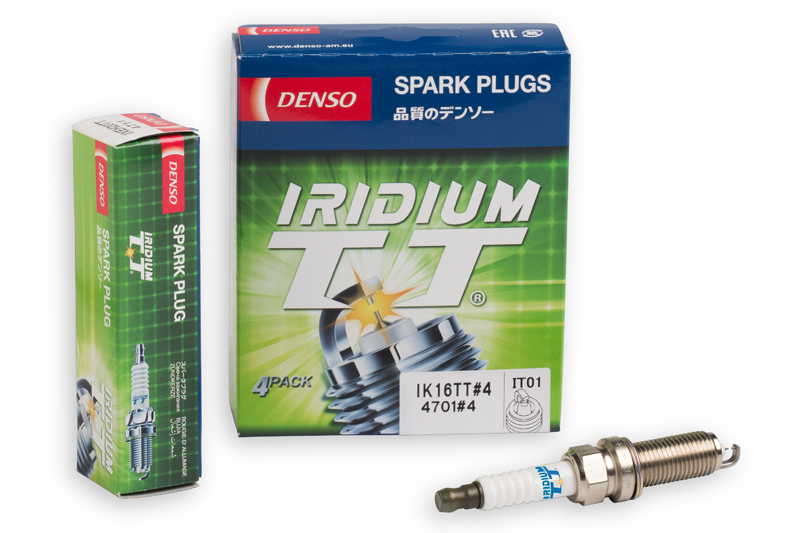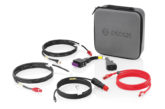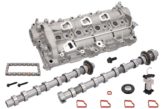Increasing awareness of the impact of climate change has heralded stricter emissions regulations and tougher MOTs, whilst consumers are more likely than ever to care about the environmental efficiency of their cars. DENSO explains how garages should be looking to capitalise on these changes by preparing for a greener future.
In recent years, the future of the internal combustion engine (ICE) has been put in doubt by increasingly strict regulations, and a gradual acceptance by consumers and businesses that alternatively fuelled vehicles have their place. However, the ICE isn’t likely to be going anywhere soon. As increasingly efficient engines have hit the market, it looks like vehicles with ICEs will continue to play a significant part of the UK market for years to come – even beyond 2040.
With a spotlight on climate change, modern drivers are demanding more fuel- efficient and environmentally-friendly vehicles. Therefore, it is vital to ensure ICE engines remain as efficient as the day they left the factory, and workshops can play a crucial role in helping to do this at little cost.
In doing so, proactive workshops could find themselves ahead of the game as regulations continue to tighten. Ensuring drivers are safe, secure and environmentally- friendly on the road could help build a strong returning customer base for the years to come. The first step towards this could be simple, in the form of using advanced components throughout the engine to help maintain or even improve efficiency, ensuring a vehicle stays in perfect running order.
Lambda sensors
Essentially the brain of the fuel injection system, Lambda sensors can have a significant impact on exhaust emissions, and a thorough working knowledge can help workshops stay on top of current and upcoming regulations and keep drivers as green as possible on the road.
 Working in tandem with the catalytic converter and the engine management system (EMS), Lambda sensors work by limiting the amount of CO2 being emitted. They do this by monitoring the percentage of unburned oxygen present in the vehicle’s exhaust gases, before signalling to the EMS if the oxygen content is too high or low.
Working in tandem with the catalytic converter and the engine management system (EMS), Lambda sensors work by limiting the amount of CO2 being emitted. They do this by monitoring the percentage of unburned oxygen present in the vehicle’s exhaust gases, before signalling to the EMS if the oxygen content is too high or low.
The EMS will then respond by adjusting the air/fuel mixture to reach the ideal amount of unburned oxygen – some unburned oxygen is needed for the catalytic converter to function properly and efficiently.
Providing a performance boost, high- quality Lambda sensors can give workshops the best chance of providing customers with products adhering to tightening regulations. DENSO’s Lambda sensors feature an aluminium-oxide protective layer, which ensures that there is nothing preventing the sensor from providing accurate readings for the ICE to adapt to.
Additionally, a double protection cover is present on all of the company’s sensors. This maintains a consistent temperature, resulting in quicker response times and protection from silicone and lead poisoning. Both work in tandem to help make an ICE engine more reliable and efficient, while reducing emissions.
Spark plugs
The way a spark plug ignites is imperative to the environmental impact of a car, and despite speculation, this will likely be the case in the future. Poor ignitability in a spark plug causes combustion fluctuation, which amounts to higher fuel consumption and greater CO, CO2 and HC emissions. As a result, high quality spark plugs continue to be pivotal for workshops and their customers, making their petrol-powered vehicles as efficient and environmentally- friendly as possible.

With ICEs likely to remain a fixture for years to come, and with stricter regulations looming on the horizon, manufacturers and workshops will need to make the most of advanced componentry.
Spark Plugs that are made with precious metals, such as Iridium, can not only provide superior durability, corrosion resistance and flexibility, but can help achieve quicker ignition, and contribute to a more efficient engine and reduced emissions. DENSO Spark Plugs adhere to strict OEM standards, and its Iridium TT Spark Plugs provide an efficient and environmentally friendly ignition process. Featuring a small centre electrode, measuring just 0.4mm, the spark can grow more consistently and comprehensively in all directions. As a result, the advanced spark plug ignites at a much lower voltage, to minimise fuel usage and emissions.
The road ahead
The importance of high quality products in limiting a vehicle’s environmental impact cannot be understated. When EURO 6 regulations were applied in September 2015, almost all OEM brands had already met the requirements the previous year, whilst those falling outside this bracket struggled.
In the coming years, regulations are expected to be increasingly stringent and the importance of OE-standard products for a future with strict emission rules should not be underestimated.











